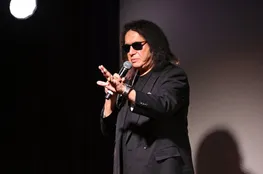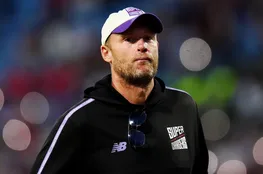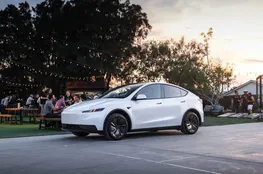For decades, the parking lots surrounding Citi Field have represented a missed opportunity. The 50 acres of empty asphalt have divided our neighborhoods and offer little value to the community. Now, Metropolitan Park is our chance to finally change that. Last week, the New York State Assembly overwhelmingly approved permitted use legislation that will allow Metropolitan Park to compete for one of the three downstate gaming licenses. This is the latest in a series of milestones for a project that will create more than 23,000 union jobs, establish a new 25-acre public park, deliver $1 billion in community benefits, and feature 450 units of all-affordable housing for Queens families. Metropolitan Park isn’t just a transformative investment in jobs, parks, and infrastructure. It’s the result of years of deep, intentional engagement with our neighborhoods. It stands as a model for what happens when the backers of a project listen to the community and build from the ground up. I saw that grassroots support firsthand during the public hearing my office held to review the project as part of New York City’s rigorous land use approvals process, known as the Uniform Land Use Review Procedure (ULURP). From local support groups, to small businesses, community activists, and local residents, more than 240 people came forward to express their support of Metropolitan Park throughout all of the public ULURP hearings. The energy and feedback from the community was proof that this project reflects the real, on-the-ground needs of our neighbors. We also saw this reflected when all six Community Boards that border the proposed project area voted in favor of the plan, with a resounding 83% of voting members across those boards giving their approval. That’s a nearly unheard of show of support for a project of this scale and speaks volumes about the unprecedented outreach and community engagement that’s been happening for years. Metropolitan Park’s commitment to serving the local community has also been demonstrated by the tremendous support it has received by local community groups. The project has been endorsed by dozens of local support organizations, small business groups, and community advocates including Queens Women’s Chamber of Commerce, Elmcor Youth and Adult Activities, the East Elmhurst-Corona Civic Association and the Korean American Family Service Center. And let’s not overlook the project’s promise to use 100% union labor, a commitment that has earned the support of major labor organizations including the Building and Construction Trades Council and the Hotel and Gaming Trades Council. These jobs will provide good-pay, career pathways, and economic stability for thousands of New Yorkers, many of whom call Queens home.
For decades, communities like Corona, Jackson Heights, and East Elmhurst have faced challenges — higher rates of poverty, limited economic opportunity, and disinvestment that left many families struggling to make ends meet. These inequities existed before the pandemic, with COVID-19 only deepening them further as the virus ravaged this area’s physical and economic health. Now, we have a chance to start reversing that trend. The Metropolitan Park plan, with its promise to bring jobs, economic opportunity, and public investment, represents a meaningful and long-overdue shift. I was proud to move this project forward through ULURP, and I stand shoulder to shoulder with my colleagues in the City Council and state Assembly who have overwhelmingly voted in favor of the project. Their leadership and unity reflect what we in Queens have known for years: that this is the right plan at the right moment. Now, it’s time for the state Senate to do its part. I urge them to approve the permitted use legislation introduced by local representatives Sen. John Liu and Assemblywoman Larinda Hooks, allowing Metropolitan Park to move forward. North Queens families deserve an affordable place to call home. Our neighbors deserve to work good-paying union jobs. Our street vendors deserve to sell their goods in the brick-and-mortar Taste of Queens Food Hall, which I was proud to have successfully negotiated into the project. This entire community deserves the benefits that will come from funding our local nonprofits, reimagining the Mets-Willetts Point transit hub and more. And our aging infrastructure deserves to be reimagined for the future. Queens has spoken. Loudly. This is the project our community wants, and the one we need. Let’s not miss this once-in-a-generation opportunity to bring jobs, green space, transit upgrades, housing, and community investment to the heart of our borough. Let’s get this done for our neighbors, for our families, and for the future of Queens.
























